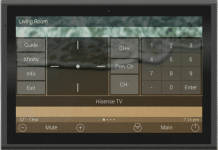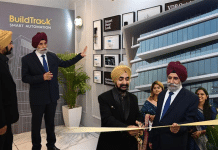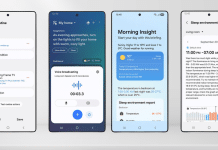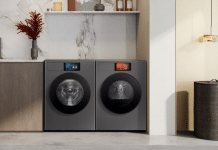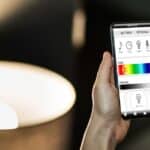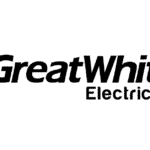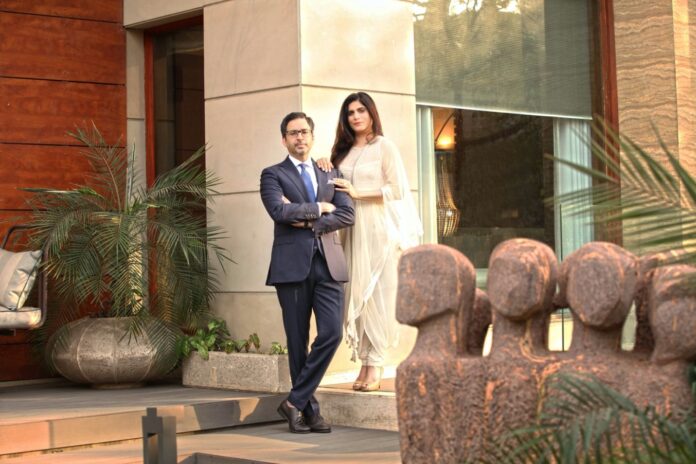
Technology has pervaded every aspect of our lifestyle. With advancements in automation, there are many time-saving solutions available. Smart home automation lets you tap into high-tech functionality and luxury, hence becoming an essential part of modern life. “If, by touching a few buttons on your phone or a remote, you can switch on/off and control the intensity of lights, air conditioners, air purifiers, curtains, your surround sound and other gadgets, it’s a welcome addition to a fast-paced life”, says Hardesh Chawla & Monica Chawla – Founders & Interior Designers, Essentia Environments. It also helps you keep tabs on what’s happening inside your home at all times from anywhere in the world. “By offering control of all gadgets in your home through one interface, home automation has taken a giant step, at the same time optimizing the use of natural resources”, they add.
What kind of consumer-group are opting for it the most?
The upwardly mobile section, where both the man and woman are busy with their careers, have no time for mundane everyday tasks. Also, they lead a very fine-tuned lifestyle, where they need a particular mood lighting at a given time in their space, or a certain music playing at the background, without much effort. So they would want to use a system where the lighting, surround sound, home theatre, etc., are aligned to meet their specific needs. This kind of personalized and individualistic environment is possible with home automation.
What according to you are the must-have smart home products in today’s contemporary homes?
Home security, automatic operation of curtains and window dressing, and ambient lighting and management of entertainment areas with the right kind of music, lighting to create the desired atmosphere – these are some of the must-have solutions. The provision to dim, or turn on and off lights at specific times can save resources like electricity.
Surveillance and other tangible security systems across your home that you can activate from your phone before going to bed, automated door locks that you can access from anywhere, are a boon.
Products of which category (lighting, security, entertainment etc.) witness maximum demand when it comes to integrating smart home products while doing the interiors? Why?
With the kind of luxury homes we create, managing the lighting efficiently across all areas and floors becomes a task that is well handled by automation. As also the home theatre and surround sound systems, and of course routine tasks like curtain operations and security.
In what ways do you think the concept of smart homes/home automation has contributed to the lifestyles of the working professionals?
It obviously makes things easier and streamlined. You can truly refine your lifestyle with the addition of these solutions as a lot of chores are out of your way, leading to a truly smart life.
Do you think smart homes are environmentally friendly? Can you please elaborate on the relationship of smart homes with sustainability?
Smart homes make modern living absolutely streamlined, easy and comfortable. You can switch on and off lights, appliances like air conditioners, fans, ovens, geysers, etc., without any hassle. You can control ambient lighting, music, etc with just a touch of a button, and also mundane tasks like opening and closing of the curtains, shutting off the water supply to the overhead tank, etc, can be done just by clicking a few buttons on your smartphone or a tab.
While this makes the boring tasks easy and seamless and saves time, it also helps you cut down on consumption and wastage of precious resources like electricity and water, by switching off supply on time. By using a timer, a lot of these tasks can be completed within the time required with no wastage of electricity. With the efficient control of ACs and fans, you can reduce electricity consumption. So yes, this way, smart homes are environmentally friendly.
While the world ‘smart’ makes it sound modern, and modern is often construed as non-sustainable, these are misconceptions. Here we are using technology to control the use and wastage of precious natural resources. That makes smart home applications eco-friendly. Smart homes allow you to use these resources with care and thoughtful consideration. So we must say that smart homes help one to be sustainable. In fact, smart home applications can be cleverly used to make our homes and offices more sustainable.
How do you foresee the demand graph for smart homes 5 years down the line?
All technology is getting updated and fine-tuned even as we speak, so is smart home technology. Today the focus is back on home as most people continue to work from home. So they embrace anything that makes things easier for them around the home. Definitely, more people will opt for smart tech and automation.



